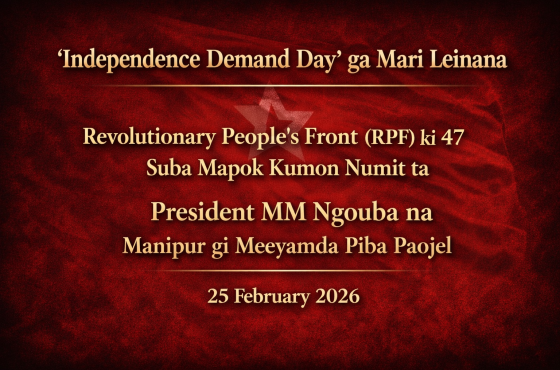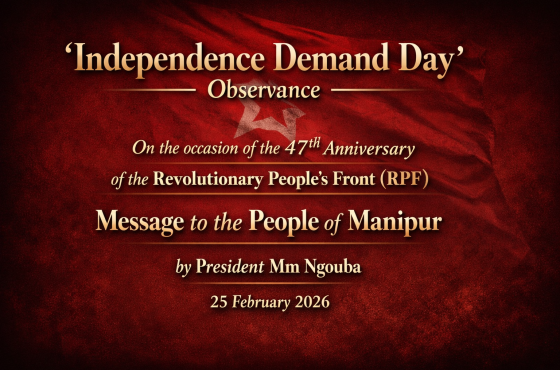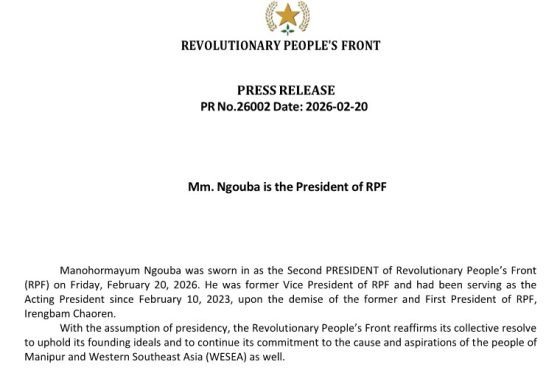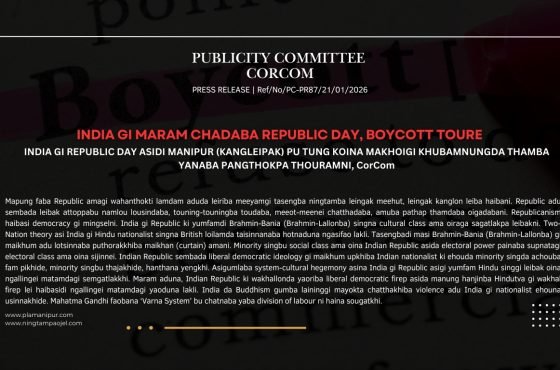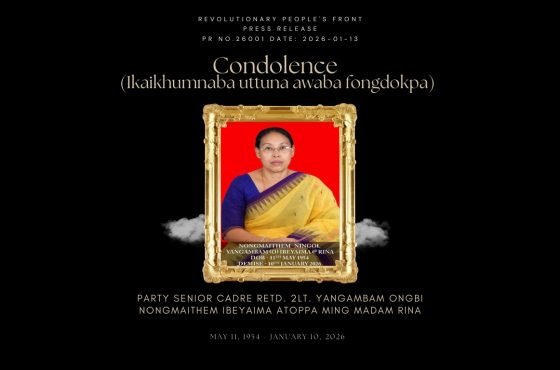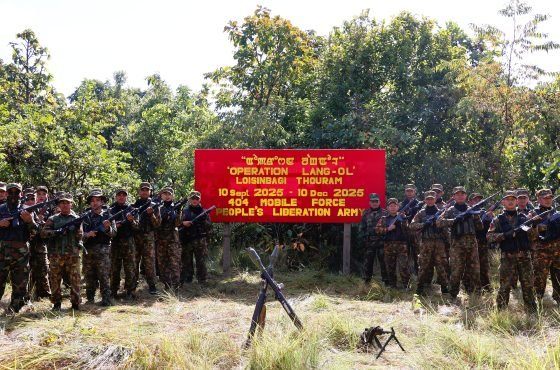PEOPLE’S LIBERATION ARMY
Recent Articles
‘Independence Demand Day’ Observance On the occasion of the 47th Anniversary of the Revolutionary People’s Front (RPF) Message to the People of Manipur by President Mm Ngouba 25 February 2026
Mm. Ngouba is the President of RPF
INDIA GI MARAM CHADABA REPUBLIC DAY, BOYCOTT TOURE
“Condolence – Ikaikhumnaba uttuna awaba fongdokpa
OPERATION: LANG-OL LOISINBA
NINGKHATAMBA
INDEPENDENT
Manipur is not a nation that emerged yesterday. For many centuries—long before 33 A.D. until October 15, 1949—it remained predominantly an independent sovereign state. Throughout much of this period, Manipur functioned as a self-governing nation-state with a robust administrative system and an independent judiciary.
Beyond its advanced governance, Manipur also maintained a self-sufficient and adaptable economy capable of meeting the demands of its time. The economic system during its independence differed significantly from the exploitative conditions imposed under colonial rule. Under British domination, Manipur’s once-thriving productivity systems deteriorated into a state of dependency and economic servitude. Historically, Manipur flourished in abundance without external aid, but after its forced annexation by India, it gradually became reliant on purchasing essential goods from India to sustain itself.
To the east, Manipur’s interactions with Myanmar—once a formidable power—were marked by repeated conflicts, leaving a lasting historical imprint on its eastern border that remains undeniable. Though small in size, these historical accounts serve as undeniable proof of Manipur’s past sovereignty—a fact documented not only in regional history but also acknowledged in global narratives.
A new wave of civilization emerged after Manipur’s kings established ties with the West. However, what we witness today reflects the overwhelming influence of Indian and Western cultural impositions, which have overshadowed Manipur’s indigenous identity.


MARTYRED SOLDIERS
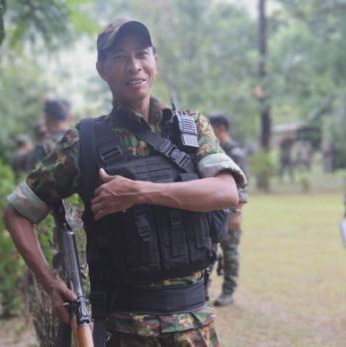
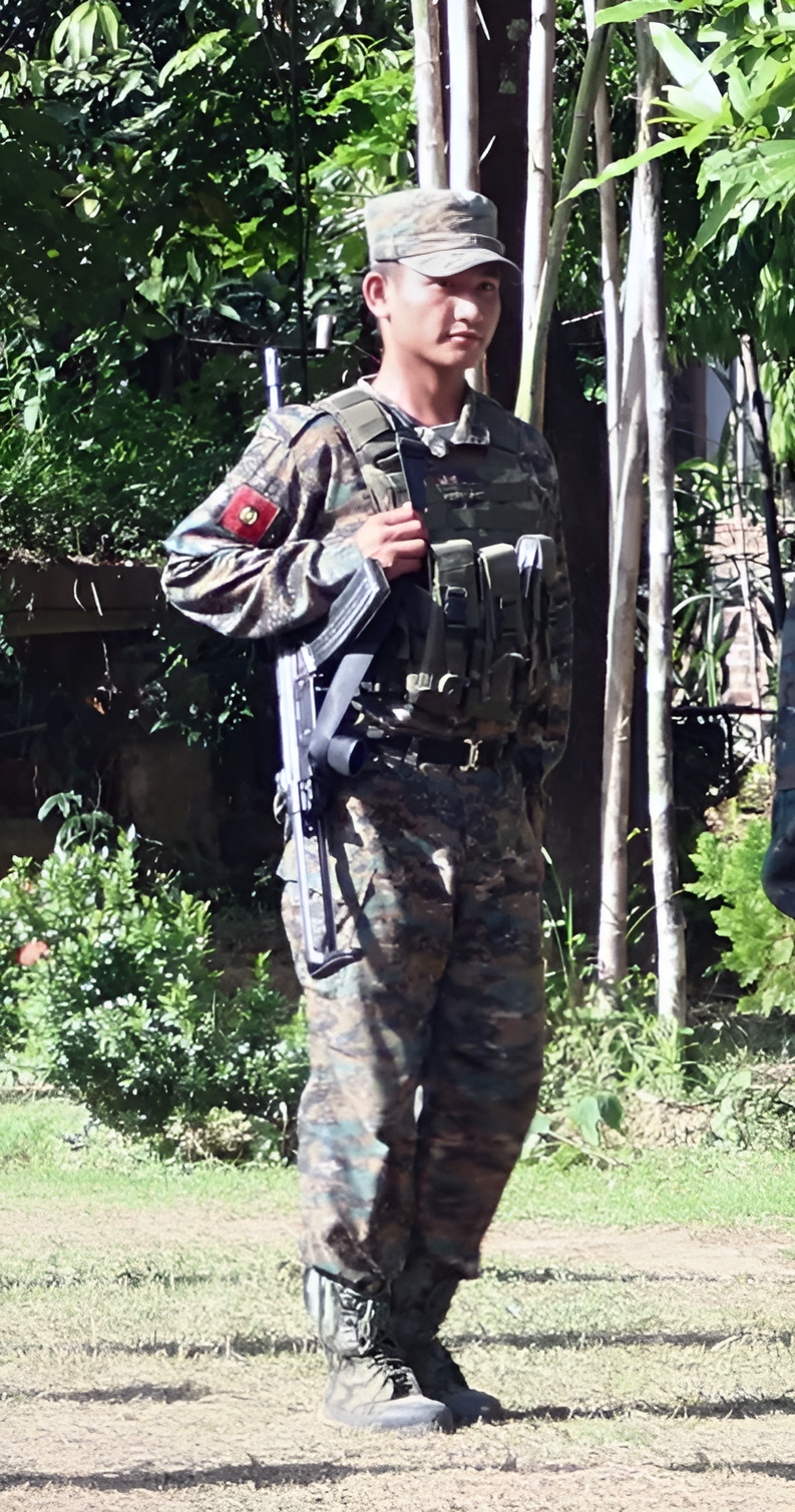
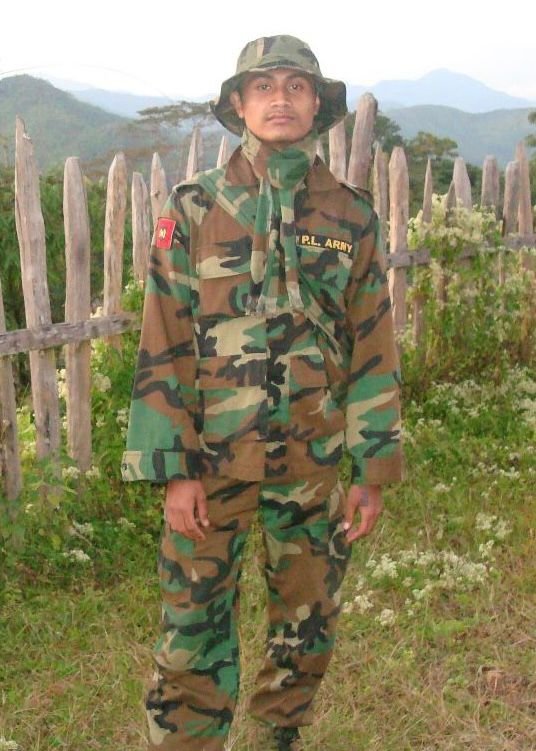
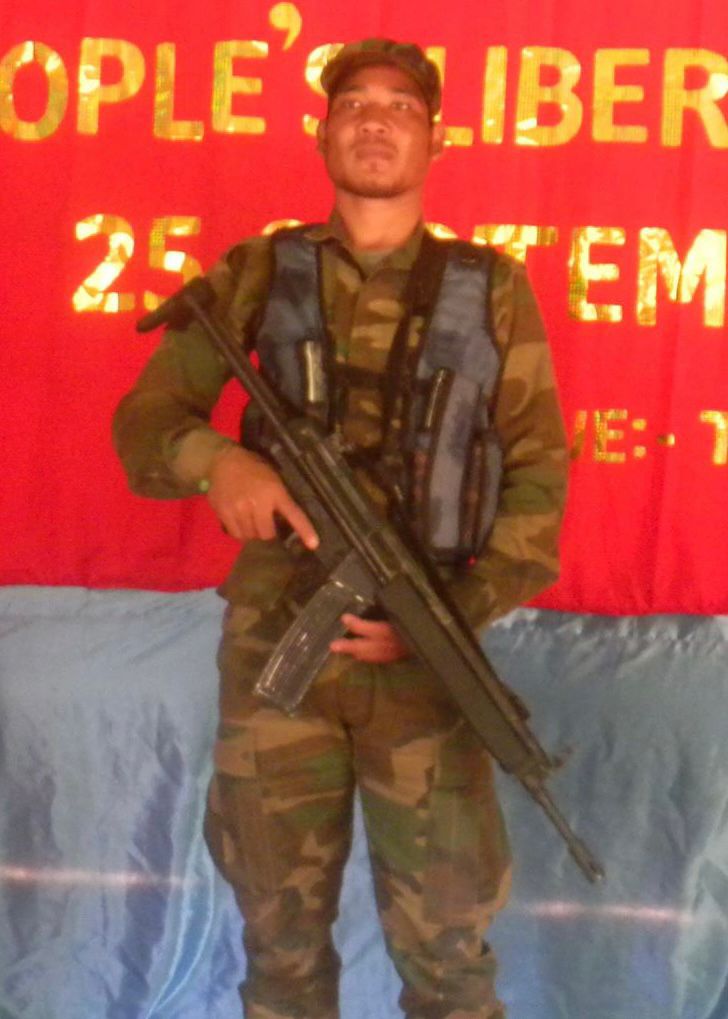
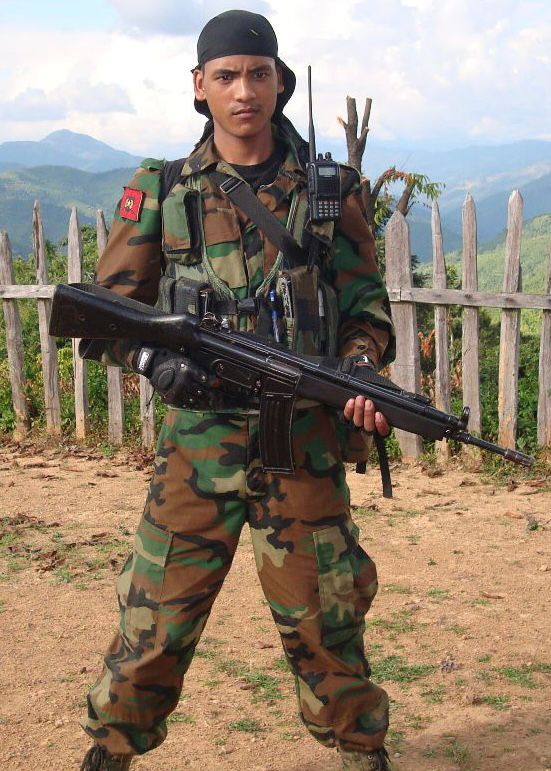
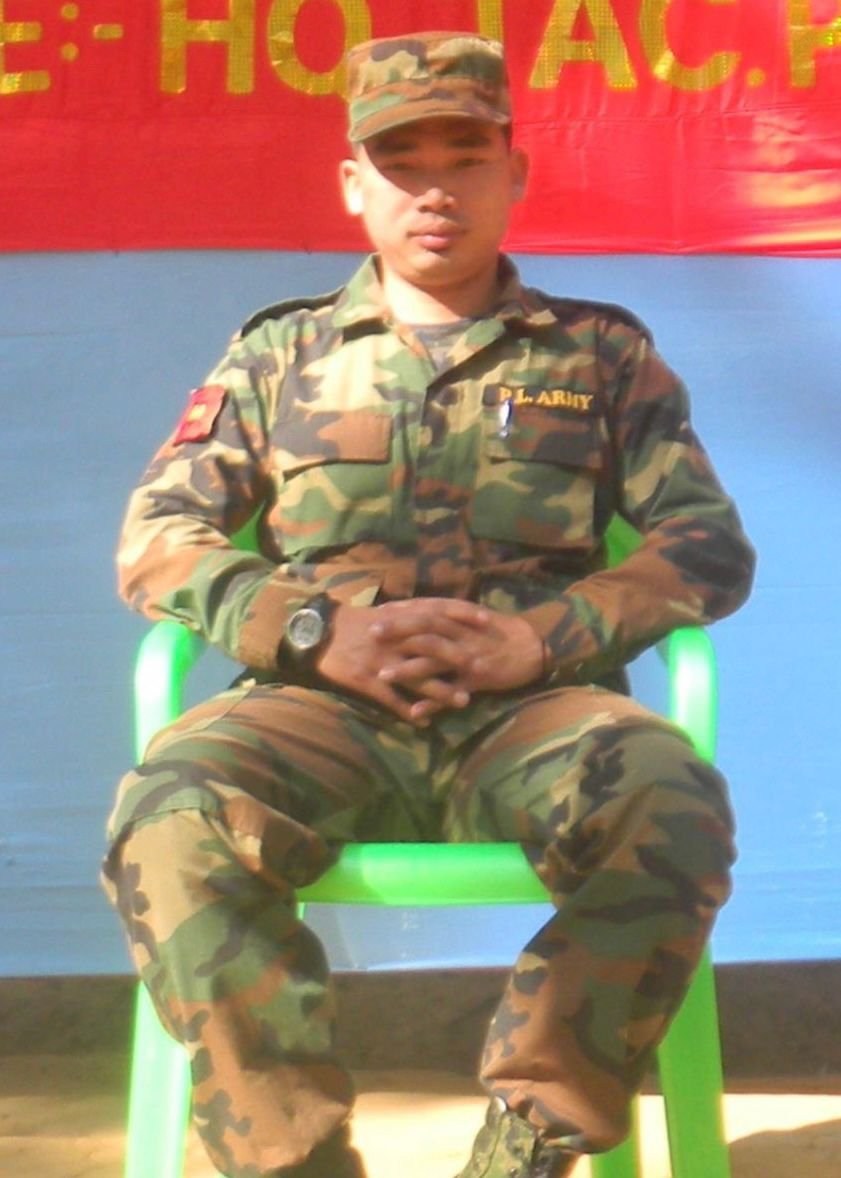
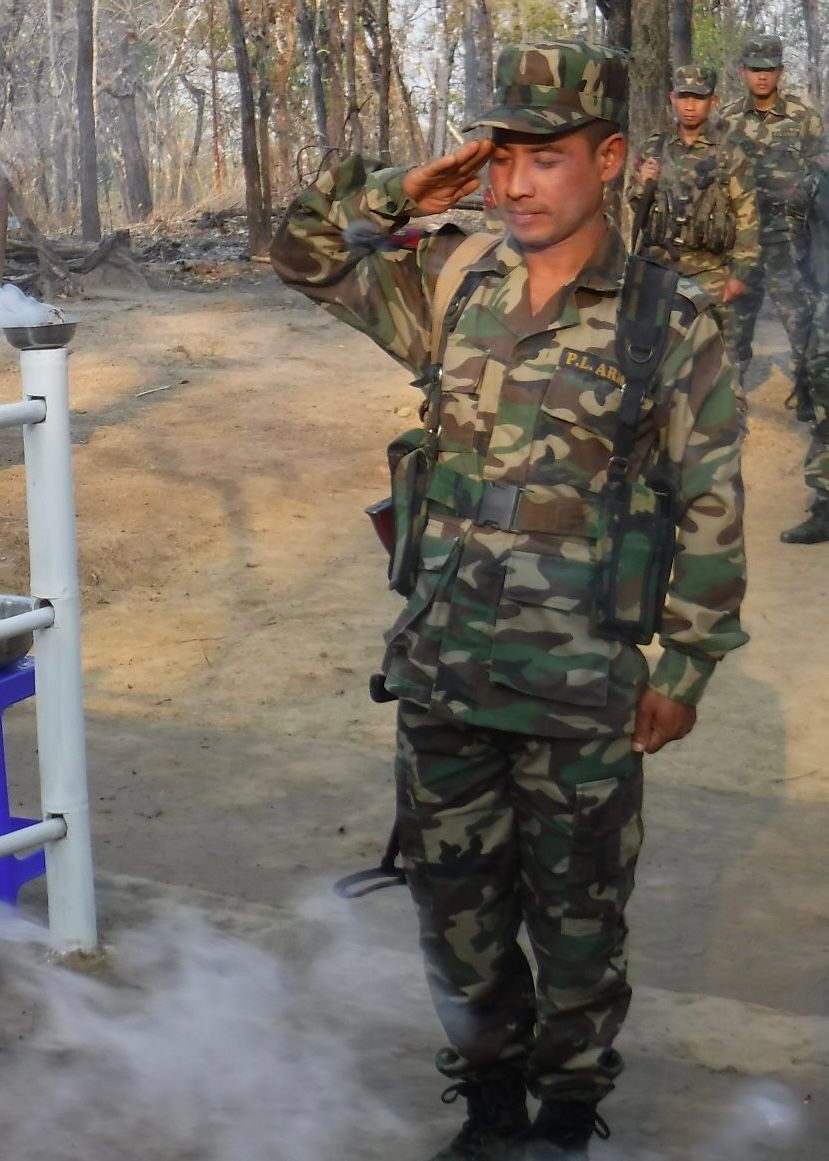
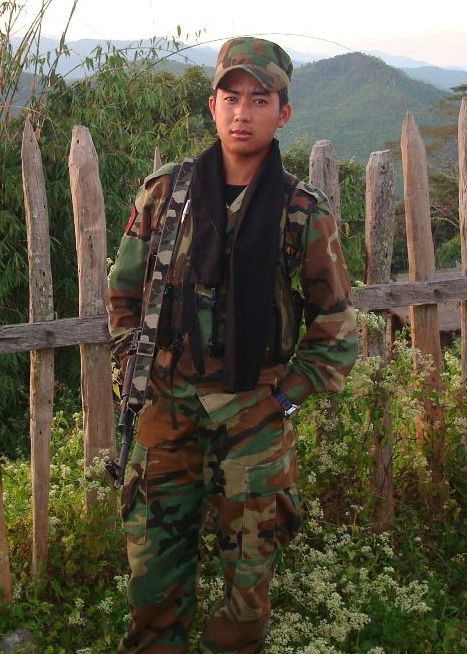
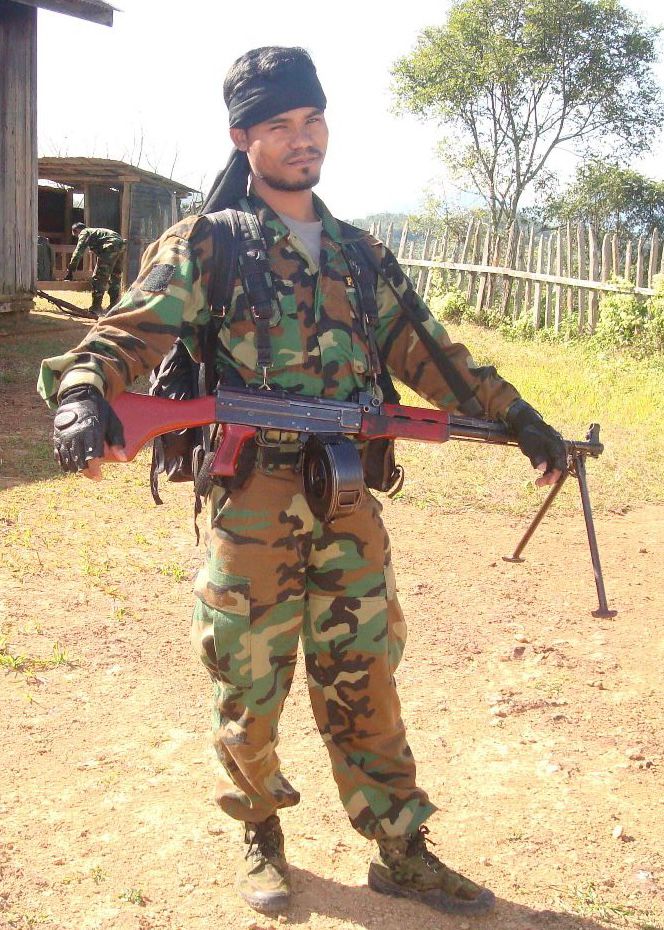
DECLARATION
The Revolutionary People’s Front (RPF) and its army, the People’s Liberation Army (PLA), which has been conducting an armed struggle since 1978, for the liberation of Manipur from the illegal and illegitimate annexation and subsequent military occupation by the Government of India.
DEEPLY CONCERNED over the flagrant violation of the international humanitarian law standards by the armed forces of the Government of India occupying Manipur, despite being one of the high contracting parties to all the four Geneva Conventions of August 12,1949.
REAFFIRMING its own humanitarian obligation and moral commitment as an armed national liberation movement.
HEREBY DECLARE, on this day the 6th of August 1997, its unequivocal intention to comply with all the provisions of Article 3 common to the four Geneva Conventions of August 12, 1949.
Irengbam Chaoren
President,
Revolutionary People’s Front, Manipur.
“RPF URGES INDIA TO SIGN THE ADDITIONAL OPTIONAL PROTOCOLS OF THE GENEVA CONVENTION”
- PLA
– Revolutionary People’s Front


